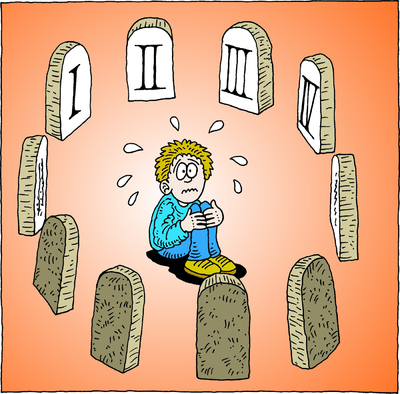"I know, O Lord, that the way of man is not in himself, that it is not in man who walks to direct his steps" (Jeremiah 10:23).
I have written many times about the doctrine of total depravity. This is the doctrine of total inability, which is closely related, but distinct. Total depravity is the condition, while total inability is the result. That is, sin has affected every faculty of our humanity, the result of which is that there REMAINS no native ability in us to perform any moral good. The two things are often equated, but I am treating them separately, because I think that Scripture addresses them separately.
It is a common error of supporters of free will that the doctrine of total inability is an invention of John Calvin, based on a misreading of the writings of Paul. I deliberately chose the verse above from Jeremiah to show that both aspects of that accusation are wrong. Total inability is an invention of neither Paul nor John Calvin.
Rather, we see in the prophet his concern that men are unable to obey God from any ability in ourselves. As he faced the coming prospect of the exile of Judah in Babylon, he lamented that Judah could not reform himself. So, he pleaded, "correct me" (verse 24), because I cannot correct myself. That is, speaking on behalf of his people.
As theologian John Frame has said, "Although fallen persons are capable of externally-good acts (acts that are good for society), they cannot do anything really good, I. e., pleasing to God (Romans 8:8). God, however, looks on the heart. And from His ultimate standpoint, fallen man has no goodness, in thought, word, or deed. He is, therefore, incapable of contributing anything to his salvation."
That is the connection of this doctrine to the gospel. The inability of men to display the righteous nature that God requires would naturally doom all men to eternal judgment (Hebrews 12:14), would display, not injustice on God's part, but rather hopelessness on the part of men. Instead, God established a righteousness which is by faith alone, the imputation of the perfect righteousness of a surety, an alien righteousness, granted to every sinner for whom He died on the cross, Jesus of Nazareth (Isaiah 26:12, John 6:37-39, II Corinthians 5:21).













